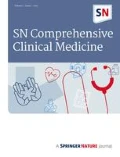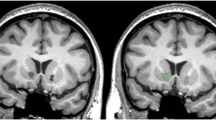Abstract
Obsessive-compulsive disorder (OCD) is a psychiatric condition characterised by ritualised behaviours and anxiety-stimulating thoughts. In severe cases, refractory to medical treatments, symptoms can have a substantial impact on patient’s social life, with important direct and indirect costs. Radiosurgery (gamma knife surgery (GKS)) and functional neurosurgery (deep brain stimulation (DBS)) have been employed as therapeutic approaches for the more severe cases of the disorder. This systematic review aims to evaluate use of GK for OCD refractory patients. The main biomedical databases (PUBMED, EMBASE, SCOPUS and Cochrane) were investigated for English-written studies regarding the use of surgical treatments in case of medically refractory OCD. Special attention was given to the patient number, approach, outcomes and complications. A high response after the procedures was seen by the use of gamma knife (GK) treatment (48.26%). It has been noted that gamma knife radiosurgery (GKRS) anterior capsulotomy shows positive and effective responses to treating refractory OCD. Furthermore, there is low evidence of GKRS capsulotomy to be effective to decreasing depression and anxiety symptoms and improving the quality of life. The main complications after the radiosurgical treatment were mood disturbances, lethargy, insomnia, cerebral oedema, gastrointestinal symptoms, radiation necrosis, weight/appetite changes and brain cysts. Although the pharmacological advancements favoured the treatment of OCD patients, the general management is still complex and presents several difficulties. In a selected group of patients refractory to pharmacological treatments and cognitive behavioural therapy, radiosurgical intervention (GKS) is seen to be a valid solution. The review of the literature presented shows that GKRS is a valid alternative in the treatment of refractory OCD.

Similar content being viewed by others
Abbreviations
- GK:
-
Gamma knife
- GKS:
-
Gamma knife surgery
- GKC:
-
Gamma knife capsulotomy
- GKRS:
-
Gamma knife radiosurgery
- OCD:
-
Obsessive-compulsive disorder
- DBS:
-
Deep brain stimulation
- Y-BOCS:
-
Yale-Brown Obsessive-Compulsive Scale
References
Blomstedt P, Sjöberg RL, Hansson M, Bodlund O, Hariz MI. Deep brain stimulation in the treatment of obsessive-compulsive disorder. World Neurosurg. 2012;80(6):e245–53. https://doi.org/10.1016/j.wneu.2012.10.006.
Gupta A, Shepard MJ, Xu Z, Maiti T, Martinez-Moreno N, Silverman J, et al. An International Radiosurgery Research Foundation multicenter retrospective study of gamma ventral capsulotomy for obsessive compulsive disorder. Neurosurgery. 2018. https://doi.org/10.1093/neuros/nyy536.
Kessler RC, Chiu WT, Demler O, Merikangas KR, Walters EE. Prevalence, severity, and comorbidity of 12-month DSMIV disorders in the National Comorbidity Survey Replication. Arch Gen Psychiatry. 2005;62:617–27 2005 (Erratum in Arch Gen Psychiatry 62:709.
Kihlström L, Guo W-Y, Lindquist C, Mindus P. Radiobiology of radiosurgery for refractory anxiety disorders. Neurosurgery. 1995;36:294–302.
Kondziolka D, Flickinger JC, Hudak R. Results following gamma knife radiosurgical anterior capsulotomies for obsessive compulsive disorder. Neurosurgery. 2011;68:28–33.
Koran LM, Hanna GL, Hollander E, Nestadt G, Simpson HB. Practice guideline for the treatment of patients with obsessive compulsive disorder. Am J Psychiatry. 2007;164(7 Suppl):5–53.
Lipsman N, Neimat JS, Lozano AM. Deep brain stimulation for treatment-refractory obsessive-compulsive disorder: the search for a valid target. Neurosurgery. 2007;61:1–13.
Lopes AC, Greenberg BD, Norén G, Canteras MM, Busatto GF, de Mathis ME, et al. Treatment of resistant obsessive-compulsive disorder with ventral capsular/ventral striatal gamma capsulotomy: a pilot prospective study. J Neuropsychiatr Clin Neurosci. 2009;21:381–92.
Lopes AC, Greenberg BD, Canteras MM, Batistuzzo MC, Hoexter MQ, Gentil AF, et al. Gamma ventral capsulotomy for obsessive-compulsive disorder: a randomized clinical trial. JAMA Psychiatry. 2014;71:1066–76.
Mendelsohn D, Lipsman N, Lozano AM, Taira T, Bernstein M. The contemporary practice of psychiatric surgery: results from a global survey of functional neurosurgeons. Stereotact Funct Neurosurg. 2013;91(5):306–13. https://doi.org/10.1159/000348323.
Miguel EC, Lopes AC, McLaughlin NCR, Norén G, Gentil AF, Hamani C, et al. Evolution of gamma knife capsulotomy for intractable obsessive-compulsive disorder. Mol Psychiatry. 2019;24(2):218–40.
Mindus P, Jenike MA. Neurosurgical treatment of malignant obsessive compulsive disorder. Psychiatr Clin North Am. 1992;15:921–38.
Mindus P, Nyman H. Normalization of personality characteristics in patients with incapacitating anxiety disorders after capsulotomy. Acta Psychiatr Scand. 1991;83:283–91.
Mindus P, Rasmussen SA, Lindquist C. Neurosurgical treatment for refractory obsessive-compulsive disorder: implications for understanding frontal lobe function. J Neuropsychiatr Clin Neurosci. 1994;6:467–77.
Nyman H, Andréewitch S, Lundbäck E, Mindus P. Executive and cognitive functions in patients with extreme obsessivecompulsive disorder treated by capsulotomy. Appl Neuropsychol. 2001;8:91–8.
Pittenger C, Bloch MH. Pharmacological treatment of obsessive-compulsive disorder. Psychiatr Clin North Am. 2014;37(3):375–91. https://doi.org/10.1016/j.psc.2014.05.006.
Rasmussen S, Greenberg B. Long-term followup of gamma capsulotomy for intractable OCD (2013). Neuropsychopharmacology. 38(Suppl 2):384–5 (abstract T167).
Rück C, Karlsson A, Steele JD, Edman G, Meyerson BA, Ericson K, et al. Capsulotomy for obsessive-compulsive disorder: long-term follow-up of 25 patients. Arch Gen Psychiatry. 2008;65:914–21.
Sheehan JP, Patterson G, Schlesinger D, Xu Z. Gamma knife surgery anterior capsulotomy for severe and refractory obsessive compulsive disorder: clinical article. J Neurosurg. 2013;119:1112–8.
Sheth SA. Stereotactic radiosurgical capsulotomy for the treatment of refractory obsessive-compulsive disorder. Biol Psychiatry. 2018;84(5):320–1. https://doi.org/10.1016/j.biopsych.2018.06.013 No abstract available.
Stein DJ. Obsessive-compulsive disorder and global mental health. Indian J Psychiatry. 2019;61(Suppl 1):S4–8. https://doi.org/10.4103/psychiatry.IndianJPsychiatry_515_18.
Stein DJ, Denys D, Gloster AT, Hollander E, Leckman JF, Rauch SL, et al. Obsessive-compulsive disorder: diagnostic and treatment issues. Psychiatr Clin North Am. 2009;32:665–85.
Author information
Authors and Affiliations
Corresponding author
Ethics declarations
Ethical Statement
The present study does not need any approval from the ethical committee nor a signed informed consent from patients.
Conflict of Interest
The authors declare that they have no conflict of interest.
Additional information
Publisher’s Note
Springer Nature remains neutral with regard to jurisdictional claims in published maps and institutional affiliations.
This article is part of the Topical Collection on Surgery
Rights and permissions
About this article
Cite this article
Zaed, I., Roumy, LG., Lozito, A. et al. Gamma Knife Surgery (GKS) for the Treatment of Obsessive-Compulsive Disorder (OCD) Refractory to Pharmacological Therapy: State of the Art and Review of the Literature. SN Compr. Clin. Med. 1, 944–951 (2019). https://doi.org/10.1007/s42399-019-00141-x
Accepted:
Published:
Issue Date:
DOI: https://doi.org/10.1007/s42399-019-00141-x




